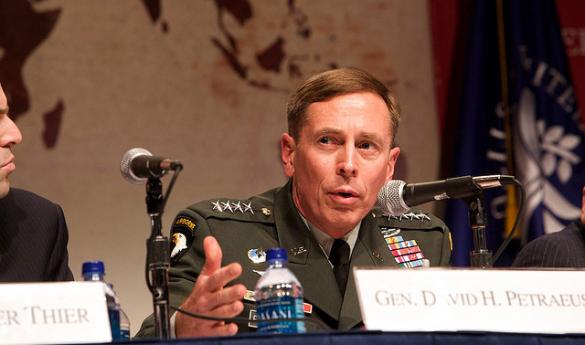OPINION: Extramarital affairs should not affect the employment status of government officials
Correction: An earlier version of this column stated that Bill Clinton had stepped down from the presidency over his impeachment trial. This was a mistake and has now been changed to say that he was impeached.
General David Petraeus stepped down from his position as the director of the Central Intelligence Agency on Nov. 9, 2012 amidst criticism concerning his affair with his personal biographer Paula Broadwell. This certainly is not the first time a public official has stepped down from a powerful office in response to the elucidation of an extramarital affair—Bill Clinton, arguably one of the most effective presidents of our time and consistently ranked in the top quartile, was impeached after allegations of having a relationship with Monica Lewinsky. But, to what degree do “extra-curricular activities” actually affect our ability to carry out our jobs?
People in Europe didn’t understand why Bill Clinton was impeached; they largely considered extramarital affairs to have no bearing on leadership capacity. While there may be a difference in cultural norms between, generally speaking, Europe and the United States, the underlying presumption, from a European perspective, still stands—why would a leader’s personal affairs be of concern to American citizens? Even when I was in high school, I was critical of the media’s incessant hounding on Sarah Palin’s daughter Bristol. Sarah Palin was an idiot regardless of how many pre-marital children her daughter popped out by Election Day—why should the personal life of her daughter have anything to do with Governor Palin’s capabilities, or lack thereof, of being vice president. The personal lives of political figures in no way affect their ability to perform their duties.
In the case of Bill Clinton, perjury was the reason for his impeachment. Federal law declares perjury to be a felony. Clinton lied under oath and, unfortunately for the American people, was nixed for it—unlike his predecessor, who we’ll leave to another article. Petraeus’s situation, however, was quite different. He resigned amongst controversy, but not as the result of any sort of immediate conviction. Perhaps the most interesting aspect of this situation is the fact that the Federal Bureau of Investigation conducted the initial investigation into supposedly harassing emails exchanged between Broadwell and an acquaintance of Petraeus, Jill Kelly. Perhaps the proximity of Broadwell to Petraeus somehow justified this awkward intrusion by the FBI, but I find it difficult to justify the FBI then ceasing a personal email account of Petraeus’s, uncovering a deeper cause for investigation, and then acting upon it, outing Petraeus’s affair.
Regardless of my opinion that the FBI should have little business in the affairs of leaders in other intelligence agencies, even if it was “accidentally stumbled upon,” an affair, in my opinion, in no way affects a leader’s capacity to carry out his or her duties. While I am not condoning adultery, I find it disappointing that the personal lives of officials are brought under the public eye. They have a right to privacy just like everyone else, and I don’t think they should have to relinquish that right in their service to the American people.
Opinions expressed in this column are solely the beliefs of the writer.
Would you like to have your opinion considered for publication? If so, send an email to opinion@connect2mason.com with the subject line "opinion writer position."

